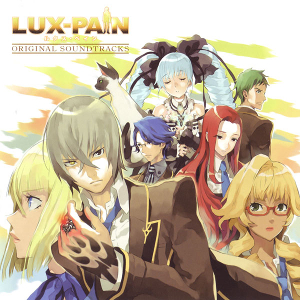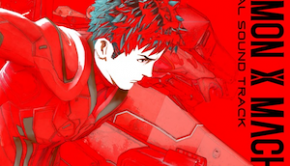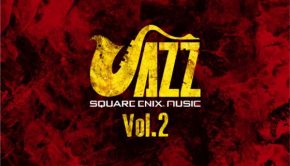Lux-Pain Original Soundtrack
 |
Album Title: Lux-Pain Original Soundtrack |
| Record Label: Marvelous Entertainment |
|
| Catalog No.: MJCD-20119 |
|
| Release Date: April 23, 2008 |
|
| Purchase: Buy at CDJapan |
Overview
In 2008, Marvelous Entertainment released Lux-Pain to audiences worldwide following an elaborate campaign. While the game was supposed to be a charming low-key visual novel, it ended up being critically-panned for its poor production values, particularly for its localisation. They hired a big name, Kenji Ito, to compose the majority of the soundtrack. Just like the game itself, however, the music is all too often unpolished and disappointing.
Body
Most of Lux-Pain’s tracks follow the tried-and-tested approach of Ito’s past scores to less impressive results. For example, the composer attempts to create a hopeful sound in “KIRIE” by blending mellow woodwind melodies above quasi-epic orchestral accompaniment. However, the composition fails to the make the emotional connection that similar themes did on the Culdcept and Mana series. This is principally because of the atrocious implementation on the DS, complete with unrealistic samples, flat mixing, and distorted sound. Similar problems continue throughout the soundtrack. Setting themes such as “Fort -Fortress-” and “Sky Blue” also take similar approaches to Ito’s tracks on Culdcept Saga, but never receive the same heights, while intended emotional interludes such as “Mirage” and “End of Line” fall flat due to their clichéd composition and aseptic synthesis. Lacking refinement or development, these tracks mostly sound like cuts that didn’t quite make it to Ito’s older soundtracks.
Ito does occasionally offer a few charming tracks. By far the biggest highlights are “Bona Fide”, “Bucolica”, and “Silent City”, all tastefully-composed, melodically-endowed acoustic themes that fit the visual novel style of the game. However, these are counterbalanced by a number of tracks that are simply awful. How did “Σ -Sigma-” and “Whisper” ever make it past the cutting room floor? The former features nothing more than a suspended synth chorus, ambient strings, and a static accompaniment repeated for two minutes. “Whisper” is even worse, perhaps the most amateurishly composed and hideously implemented horror tracks I’ve ever come across. While implementation is part of the reason behind Lux–Pain’s audio failings, it all too often feels like the composers never even tried. It all adds up to an uninspiring in-game experience and an intolerable stand-alone one.
The co-composer of the soundtrack, Yasuyuki Suzuki, brings a different palette to the game but does little to redeem the soundtrack overall. For example, he explores electronic sounds with the ethereal “Lux de Luna” and moody “Twilight”. These tracks are better-implemented than Ito’s and fit the visual novel’s style. However, they’re still quite underdeveloped, predictable compositions that leave little stand-alone impression. “Malum” meanwhile is a jazzy piano-based work punctuated by some novelty synth sounds that attempt to create humour, but actually feel awkward and desperate. Other tracks such as “Mist” and “Noir” have promise, but are let down by their repetitiveness. As with Ito’s offerings, Suzuki does bring a reasonable share of passable tracks: “Kisaragi” with its mellow bossa-nova vibes, “Ticktack” with its whimsical synth orchestration, or “Sunny Spot” with its relaxing acoustic guitar work. But whereas these tracks would be merely average on most soundtracks, they’re elevated to the best of a bad bunch here.
As the soundtrack approaches its conclusion, the disappointments continue. Expect contrived orgel sounds of “Memoria”, cringe-worthy sinister leitmotifs of “Horns of Dark”, or yet more suspended strings on “Dark Noise”. Ito at least showed some ambition with the final battle themes, Pandemonium” and “Soul Requiem”, which were intended to be epic orchestral affairs. However, his thin orchestration combined with the DS’ tinny samples mean that these tracks never quite gather the momentum Ito intended. In fact, their sound will prove jarring rather than epic for many listeners. The soundtrack is rounded off by the ending theme “Fate”, another track so bland in composition and muddy in implementation that it fails to leave any impression. There’s also a 90 second version of the theme song “Embrace the Holy Pain” – a decent J-Pop effort penned by Kenji Ito that stands out as the only well-produced track on the entire disc (there’s even Yoshitaka Hirota on bass!).
Summary
If it isn’t already abundantly clear, the Lux-Pain soundtrack is not worth your time or money. Kenji Ito wrote the music on autopilot and ended up producing his weakest material ever. Yasuyuki Suzuki wasn’t the collaborator Ito needs to redeem one of his soundtracks from mediocrity. It’s all made worse by the terrible sound quality of the soundtrack.
Do you agree with the review and score? Let us know in the comments below!
1.5
Posted on July 25, 2016 by Chris Greening. Last modified on July 25, 2016.















Nice review, thanks